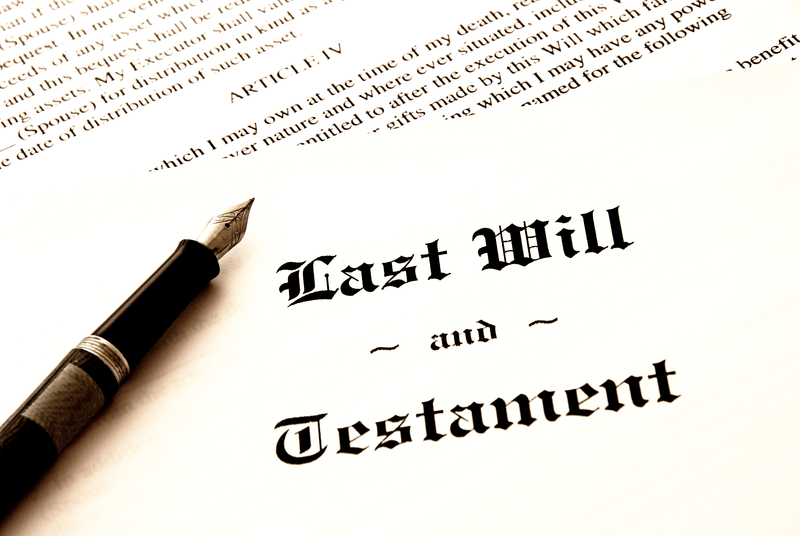
Some people get uncomfortable talking about Wills etc but whether you are 18 or 80+, you should have a valid legal Will, after all, nobody has a crystal ball and you never know what could happen next.
Wills – To ensure your Will is legal and valid and if you have any concerns, you should always seek legal advice. Here at OCHS we can provide you with expert advice on how to protect your assets and to know what your options are and legal rights upon your death.
A Will is a legal document that sets out clearly what your intentions are and how your assets (finances, property, shares etc) should be distributed for upon your death. Anyone over the age of 18 years and capable of making their own decisions, can give instructions to make a Will. You will need to appoint an Executor, this is a person who your trust and is reliable and capable of being impartial to carry out your wishes in your Will. We always recommend having a substitute Executor because if something unexpected happens to the person you appoint, then your Will is invalid. You should always review your Will periodically, especially when there is a major life event such as a divorce, death of a beneficiary or your assets change. Generally speaking you do not have to make a change to your Will if you move house.
Power of Attorney – A Power of Attorney is a legal document where you appoint someone known as an Attorney to manage your affairs when you are incapable of doing so. The Appointee cannot make decisions about your welfare or medical circumstances only financial decisions. A person appointed under the Power of Attorney can buy or sell property or do banking transactions. You should always ensure that the person or persons being appointed are trustworthy & reliable and have your best interests in mind. There is a difference between a General Power of Attorney and an Enduring Power of Attorney being that a General POA will be null & void once you loose mental capacity but an Enduring POA will be valid once mental capacity is lost. It is important to know that you can revoke (cancel) the Power of Attorney at any time.
Enduring Guardianship – An Enduring Guardianship is a legal document similar to a Power of Attorney but this document allows your Guardian (the person appointed) to make decisions on your behalf for your medical and welfare choices. The Guardian can decide where you live, what level of medical treatment you receive, basically lifestyle choices. Your Guardian cannot give instructions or alter your Will or conduct financial decisions on your behalf. You can place certain restrictions on your Guardian such as the document can only come into effect when your doctor certifies that you are incapable of making decisions on your own free will.
If you wish to discuss any of these documents please contact our office.

